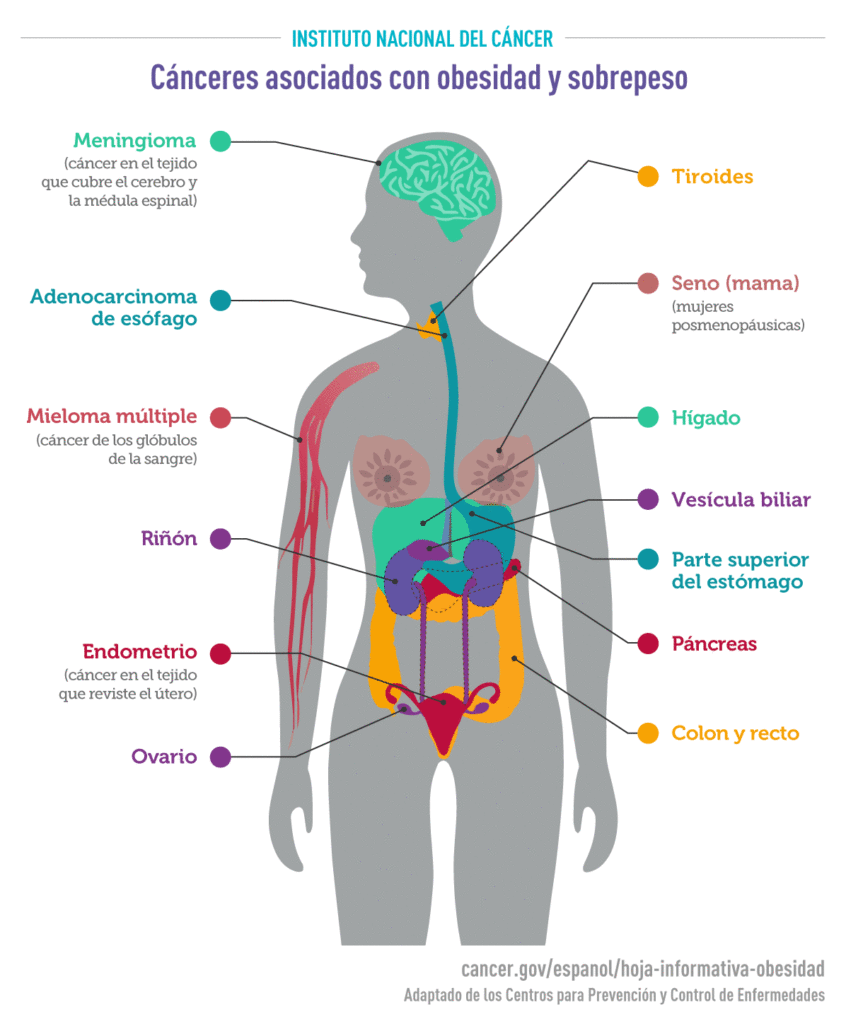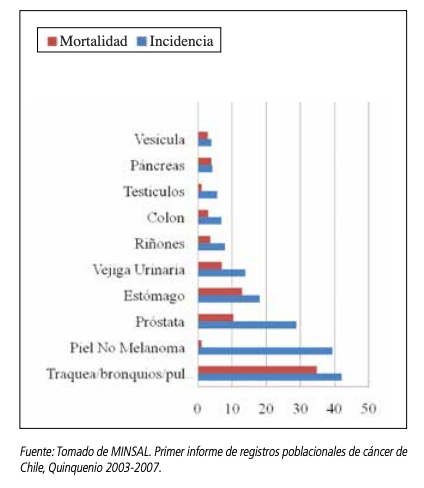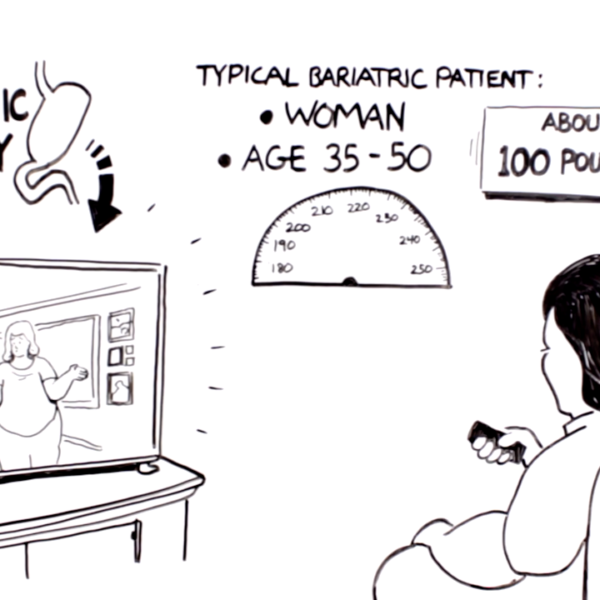Type 2 diabetes: it is a chronic, progressive and multifactorial disease, with intermediate metabolism alterations (carbohydrates, fats and proteins), associated with relative or absolute insulin deficiency and with variable degrees of resistance to it. The common denominator is characterized by hyperglycemia. Obesity, characterized mainly by visceral adiposity, is linked to patients genetically predisposed to the activation of inflammatory and metabolic mechanisms that lead to the onset of DM2 and cardiovascular disease (11).
Obesity is a major cause of type 2 diabetes. People with severe obesity are approximately 10 times more likely to have type 2 diabetes. (12). Type 2 diabetes can nearly double the risk of death (13). Type 2 diabetes can lead to:
- Amputations
- Heart disease
- Race
- Blindness
- Kidney disease
- High blood pressure
- Nerve and circulatory defects
- Difficult-to-cure infections
- Impotence
- And more
Prediabetes includes individuals with intermediate categories between normal blood glucose and DM2, with an increased risk of developing diabetes and its macro and microvascular complications (11).
The metabolic syndrome defines a group of cardiovascular and diabetes factors of metabolic origin. Abdominal obesity and insulin resistance are considered the pathophysiological basis (11). The metabolic syndrome (MS) is currently recognized as a pathological entity with its own personality and characterized by the convergence of several cardiovascular risk factors in the same person, with a marked character of underlying metabolic alteration. Arnesen defines it taking into account the following components: insulin resistance (IR), glucose intolerance or type 2 diabetes (DM-2), dyslipidemia, thrombogenesis, pro-inflammatory state, arterial hypertension and central obesity. (14)
- Dyslipidemia (abnormalities in lipid metabolism)
- Menstruation disorders in women
- Impotence in man
- Infertility







